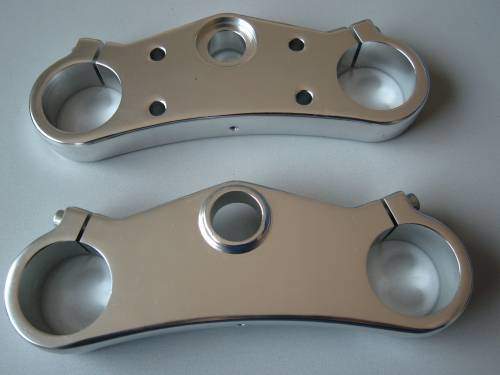Aluminum Alloy Forging Properties
Forging plays a key role in industry. Aluminum alloy is also a common material used for forging. All of forgings which are manufactured by using soft steel can be taken place by aluminum.
Aluminum alloy forging: aluminum alloy can be forged on forging hammer, mechanical press, hydraulic press, upsetting machine, ring rolling machine and other forging equipments. Moreover, open die forging, die forging, upset forging, roll forging and counterboring are adopt. In general, aluminum forging having low dimension, simple shape and few requirements for deviation can be easily manufactured by hammer. However, forging having large dimension and high requirements for severe deformation should be manufactured by using hydraulic machine.
Aluminum alloy forging properties
a. Low density. The density of aluminum alloy is only 34% of steel forging and 30% of copper forging, ideal materials for light weight.
b. High intensity, rigidity, elasticity modulus and fatigue strength. It is quite suitable for key forced parts which have high requirements for light weight.
c. Aluminum alloy has close and homogeneous internal without defects. The reliability is better than aluminum alloy casting and pressure casting, also higher than castings made from other materials.
d. Aluminum alloy has good plasticity, which can be manufactured high precision forging having various complicated shapes. It also has less machining allowance, only about 20% of machining allowance of aluminum alloy extruding thick plate, highly saving labor and cost.
e. Aluminum alloy forging has good corrosion resistance, thermal conductivity and non-magnetic.
f. Aluminum alloy forging has smooth, beautiful surface and good durability.
For its excellent properties, aluminum alloy forging can take place of steel, copper, magnesium, wood and plastic.


